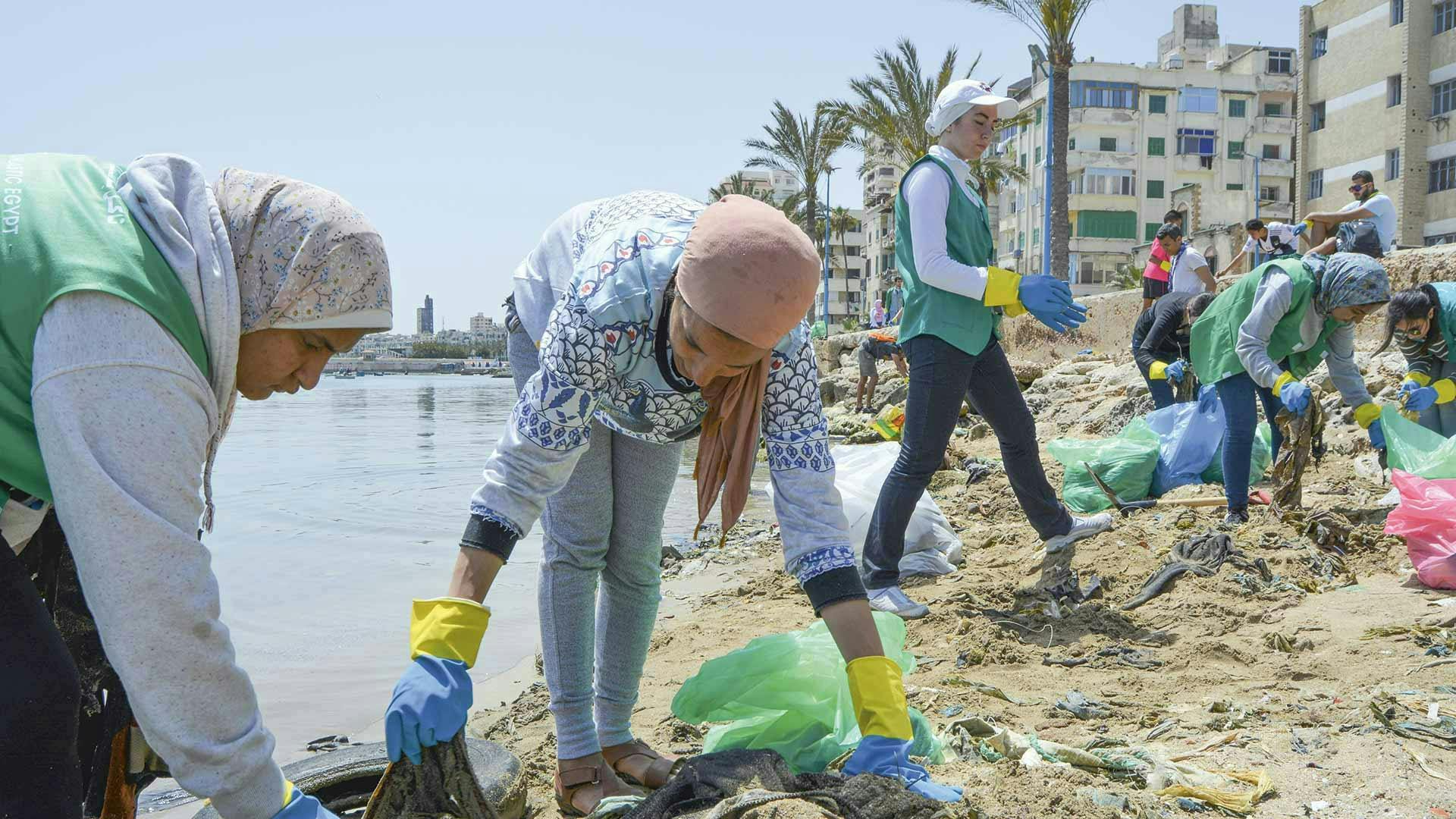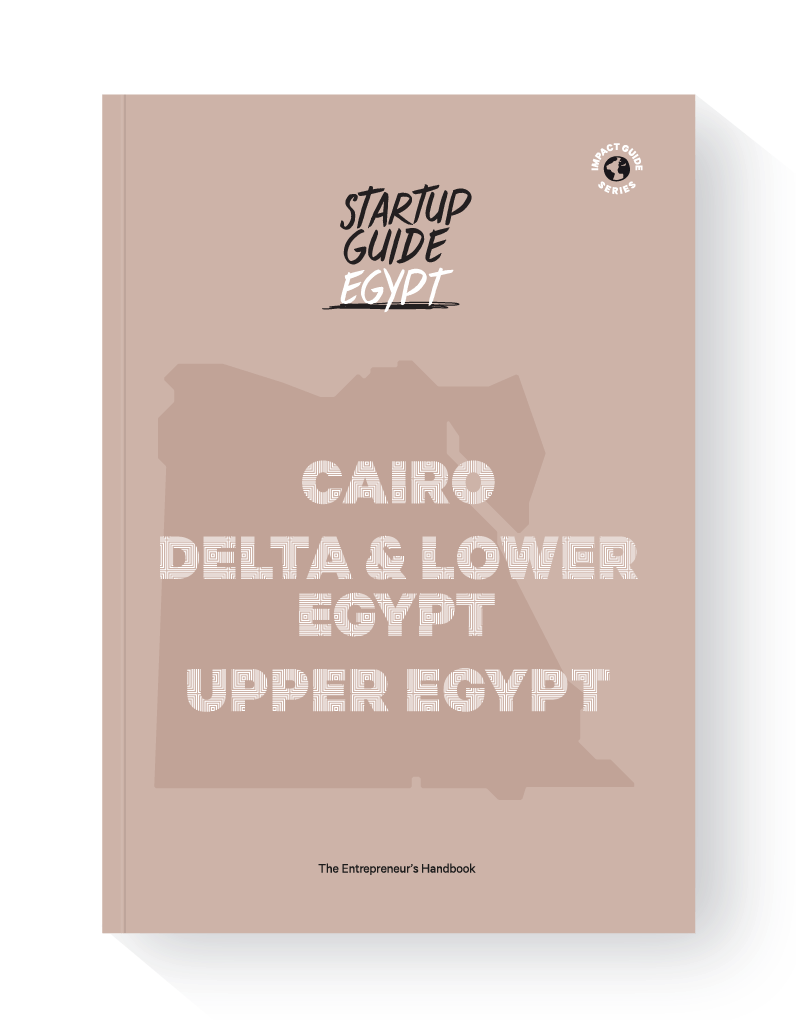Discover six of Egypt’s most impactful startups
gypt has gone through some unsettling times since the revolution erupted in 2011. But while the political and economic situation continues to frustrate many, it has amplified hope in others, encouraging them to build new enterprises to push their country’s economy and society toward the better.
Ventures in eco tourism, recycling and alternative technologies have emerged, as well as social enterprises dedicated to making life more equitable. Egypt is seeing a new generation of impact-focused founders working on solutions to both local and global challenges. Informed by Startup Guide Egypt, here are six Egyptian startups that are making real impact.
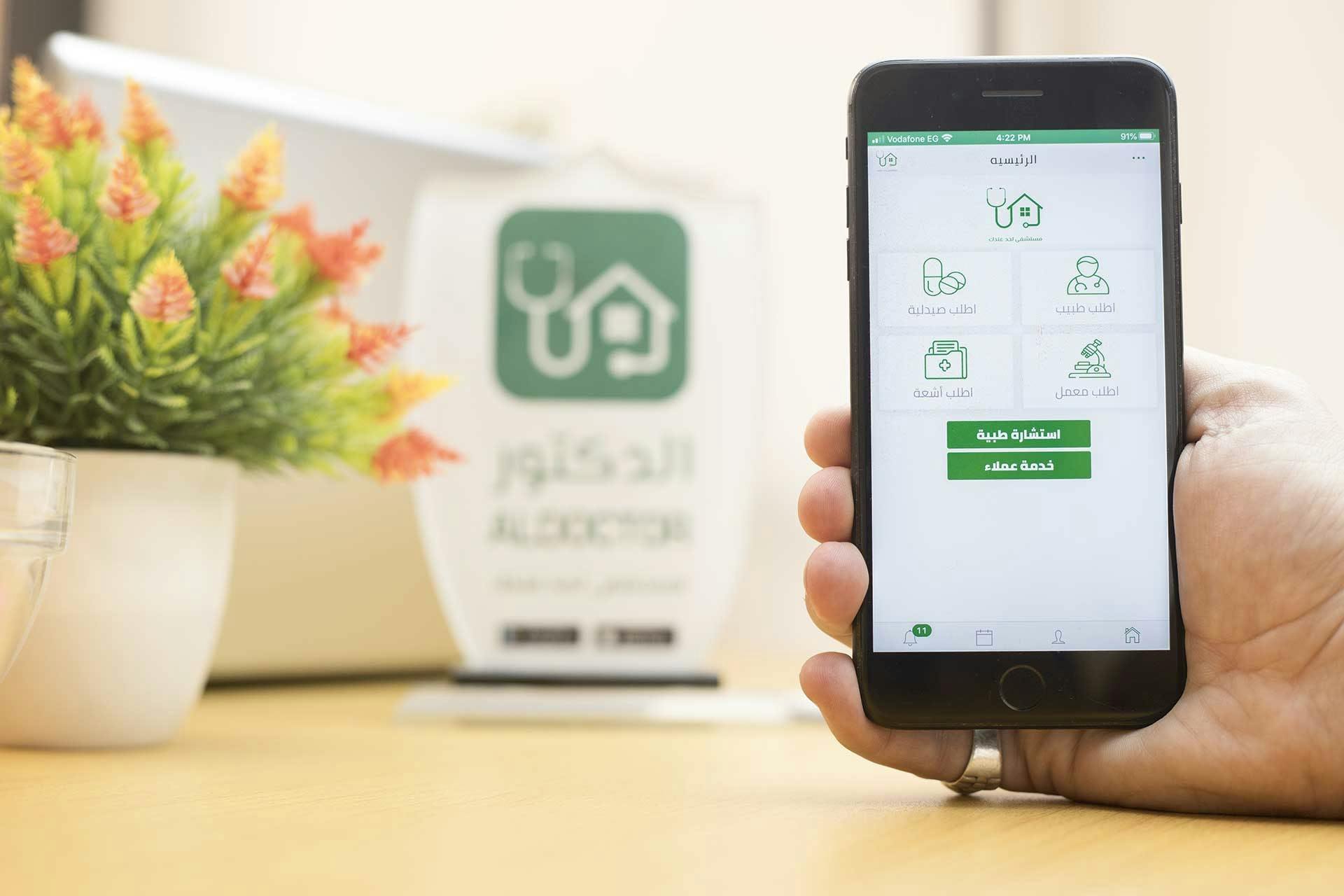
Aldoctor APP. Photo: Emad Abany
“I didn’t want to work in the traditional way or invest my money in a café or real estate,” says Aldoctor APP cofounder Wael Galal. “I wanted to find a problem in Egypt and try to solve it.”
After the 2017 oil crisis in the Arabian Gulf, Wael reconsidered his career as an IT engineer in Saudi Arabia and, with his wife Dina El-Qabbany, started Aldoctor APP to solve a problem he had encountered in his hometown, Mansoura. Wael found that Mansoura has a large number of medical graduates without sufficient income and regular practice and also noticed that not all members of society could easily access medical services. He founded Aldoctor APP with an aim to help people who struggle to access medical facilities, whether because of mobility needs or other obstacles, and to also provide new employment opportunities to medical professionals.
Wael and Dina reached out to medical service providers, such as nurses, physiotherapists, laboratories, pharmacies and mobile radiologists, and had them register as partners on the app. Patients then use Aldoctor APP to find medical service providers who will visit them at home or deliver their medication, fulfilling its slogan, “A hospital at your doorstep.”
As a compact city with a population of under 700,000, Mansoura has proved an ideal location for the startup. Wael is thankful that he didn’t start the enterprise in a bigger city such as Cairo. “I wouldn’t have gained this much experience,” he says.
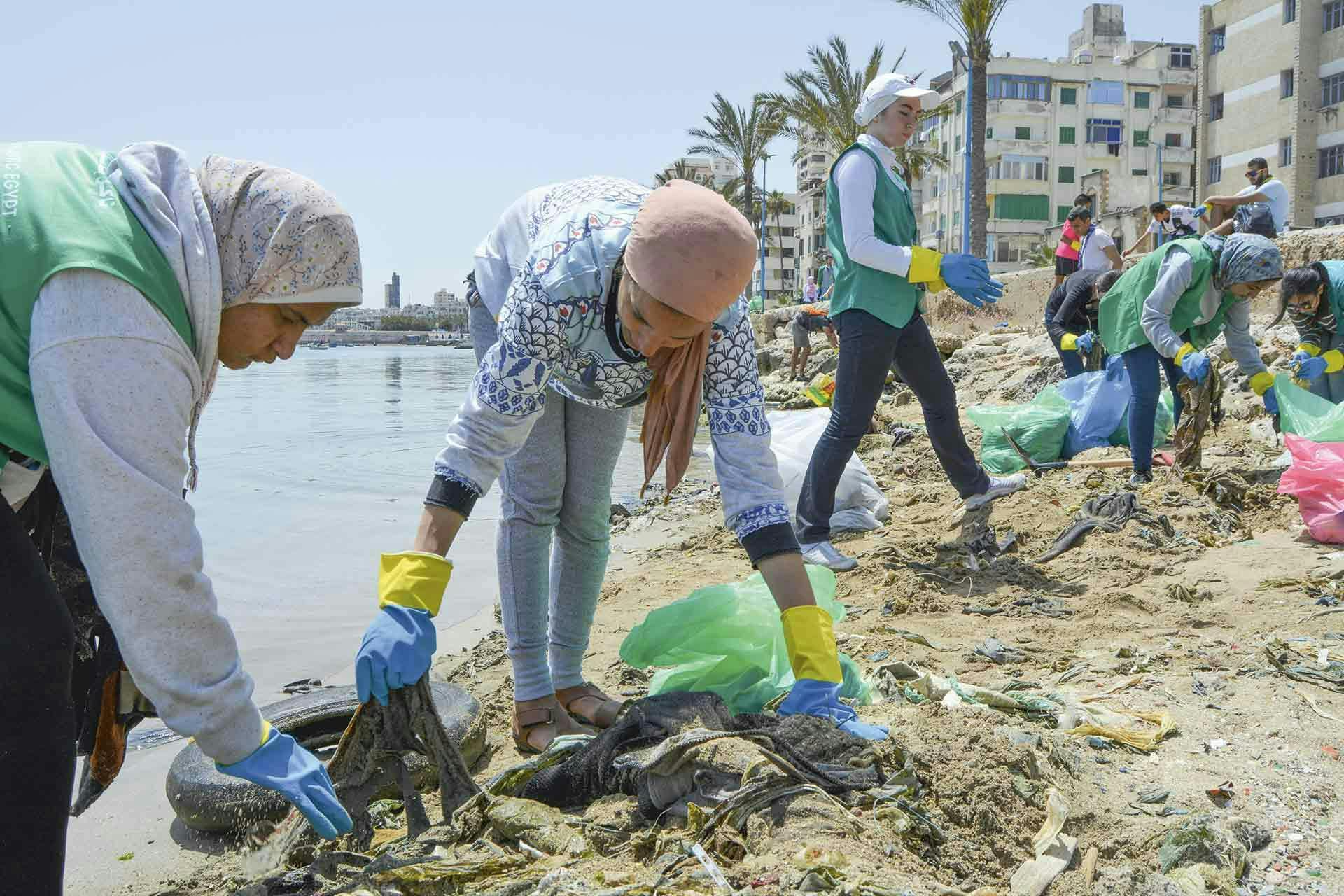
A Banlastic Egypt beach clean-up. Photo: Banlastic Photography Team
Inspired by India’s plan to ban single-use plastics, Abdelkader Al Khaligi, Ahmed Yassin and Manar Ramadan started Banlastic Egypt, a social enterprise that offers a product line of eco-friendly alternatives to single-use plastic and advocates for single-use plastics to be banned. The company teamed up with fellow Alexandrian startup Black Duck, which makes bags and other products out of recycled plastics. It also hosts workshops and beach clean-ups to educate businesses and citizens and further its cause.
Manar reports that local businesses aren’t as enthusiastic about climate action as multinational companies. “When we first started, in 2018, people deemed plastic waste a first-world problem,” says Manar. “Talking about environmental issues was seen as a luxury.” She says that local government interest is needed to push businesses to become more environmentally conscious and to encourage more green initiatives to launch in Egypt.
In March 2020, the startup and the French consulate in Alexandria had plans to make Fouad Street, a popular historical avenue in Alexandria, plastic-free by working with local businesses and other community members, but the plan was thwarted by the COVID-19 pandemic. To further raise awareness and highlight how plastic pollution is a global issue, Banlastic Egypt also works to increase the amount of Arabic content available about the topic online.
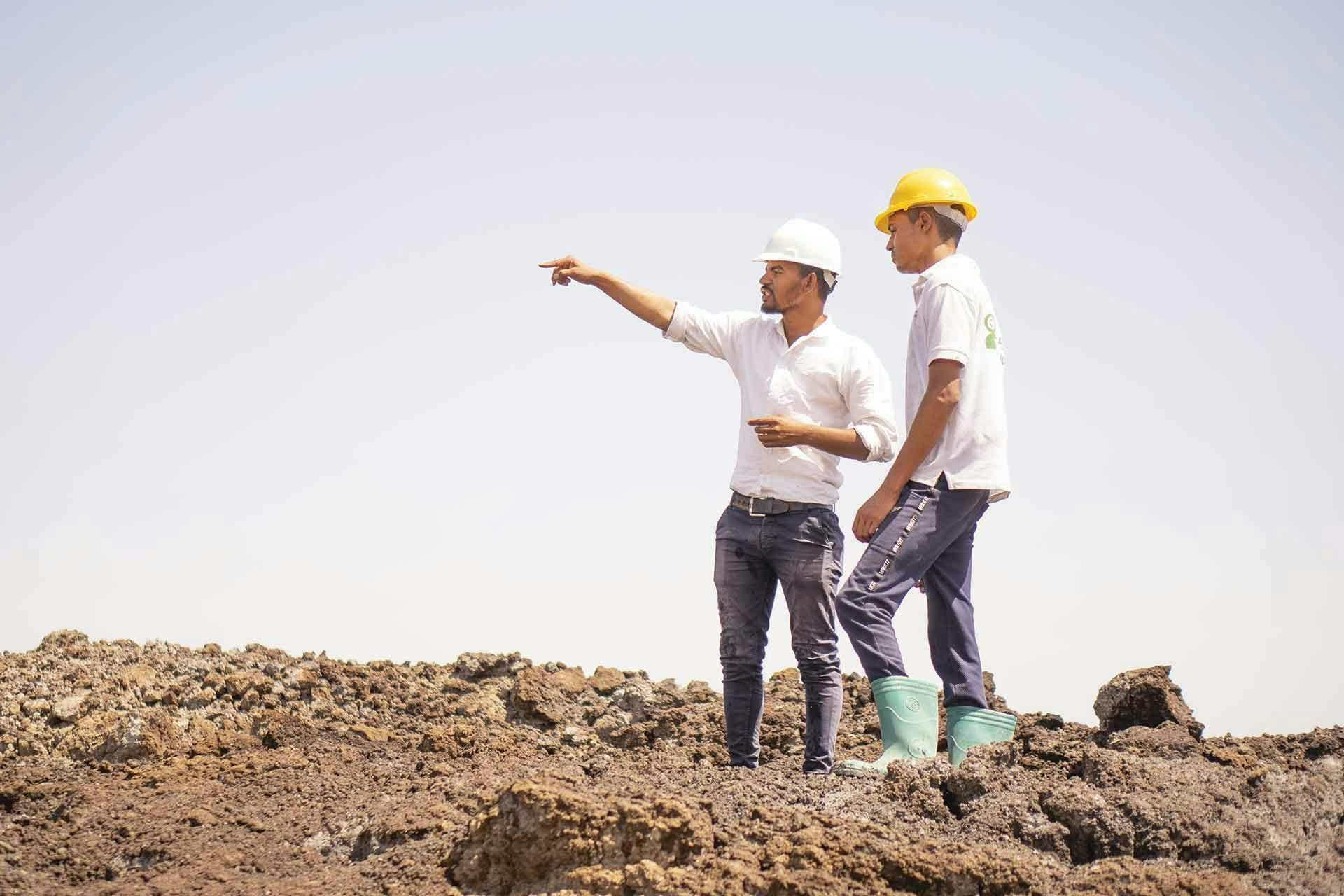
Baramoda team members in the field. Photo: Mahmoud Hawary
Qena is an agricultural governorate and home to 35% of Egypt’s sugarcane land plots. Consequently, Upper Egypt has eight sugarcane factories that produce tons of waste annually. This waste is either disposed of in landfills or used to produce bricks.
Passing by tons of dumped agricultural waste every day on their way to Qena University, Moussa Khalil and his friends were inspired to find an alternative use. In 2013, they started to collect waste from farms and factories and turn it into organic fertilizers. Thus, Baramoda was born.
“We send an agricultural engineer from our side to inspect the soil and water,” says Moussa, explaining how the company operates. “Then we start to build a product that tries to solve existing problems and help grow the crops required.”
Baramoda now has factories in Qena and Noubareya and one soon to open in Sharqeya. It has two product lines of organic fertilizers: one targeting land reclamation companies and the other targeting export companies. The company originally faced challenges in covering the transportation costs of the raw materials, which it overcame by creating local collection points where the waste is gathered and processed before transportation.
Baramoda has also partnered with Chitosan, a startup that turns shrimp shells into fertilizers, sharing the vision of making use of waste products.
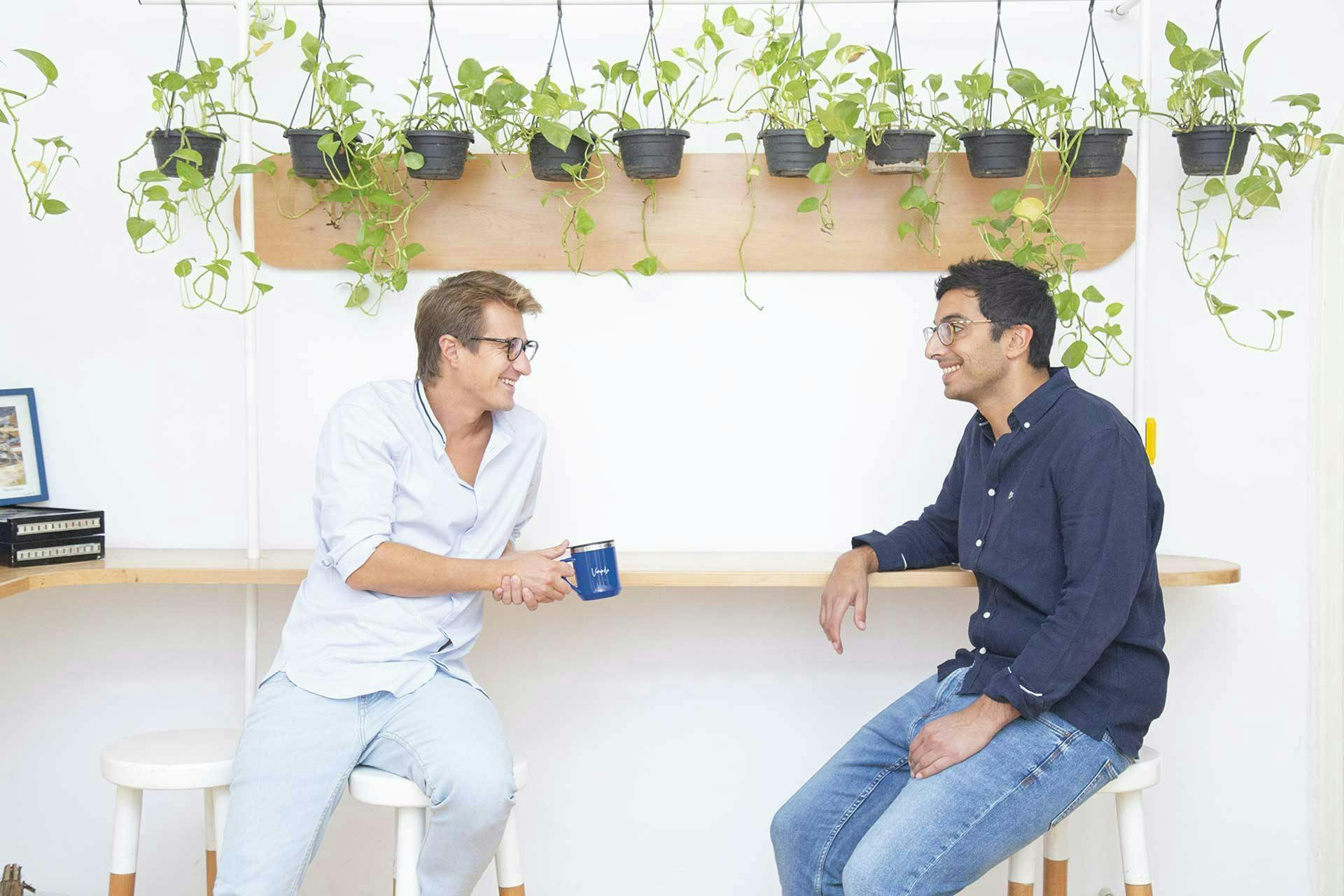
Bassita team members. Photo: Wafaa Samir
Founded in 2014, Bassita’s mission is to support and empower social-impact initiatives by raising funds and increasing their visibility. “One of the main issues we’re trying to solve is the involvement of youth in development causes,” says Alban de Ménonville, cofounder and managing director.
Now operating as an umbrella organization, Bassita chooses challenges based on their long-term social and environmental impact and brings together the right organizations to create innovative solutions. Many of these projects work towards the UN’s sustainable development goals.
“We believe that any problem has to be tackled by partners from different sectors, who might have different visions, but can work together to achieve social impact,” says Alban.
One of the organization’s longest running projects is Clickfunding. Created in 2015, it allows people to donate to causes by liking, commenting and sharing content on social media. To date, it has run 12 campaigns and raised over $700,000.
In 2016, Bassita partnered with Safarni to create a simulated travel experience to increase social cohesion between migrants and host communities in Egypt. The partnership started with three volunteers and is now a stand-alone, profitable organization. VeryNile, launched in 2018, raises awareness of the importance of environment protection, and has collected tons of trash from the Nile.
In 2019, Bassita started a Sustainability Innovation Lab in partnership with DROSOS FOUNDATION, which aims to help NGOs become sustainable in the long term. The lab works with NGOs to improve their communications, create business models and develop partnerships.

A Taslema delivery person takes a break. Photo: Taslema
Taslema, previously Presto, was created in 2019, when Alaa Moatamed and her cofounders participated in the RiseUp Week hackathon. They identified a lack of delivery drivers in smaller Egyptian cities and built an app for users to more conveniently order everything from clothing to groceries.
However, after launching and partnering with a small business, they learned that “a delivery service for customers is a convenience, but for vendors it is essential.” Taslema pivoted to working with distributors and the startup grew quickly. Alaa says that within three months of using the service, vendors saw their revenues double because they were saving money on delivery and had more time to focus on their products.
Taslema’s growth came with challenges in managing the supply of couriers and the demand of vendors, so the founders are evaluating how to make use of machine learning to better predict staffing needs and courier schedules to match vendors’ needs. Another ongoing challenge is Taslema’s mission to bring on-demand delivery services to underserved cities. Alaa and her team have found existing communities in these areas and aim to “connect emerging communities together, fulfilling their growth potential and helping them in their digital transformation.”
Most Taslema vendors are women who make and sell food and lifestyle goods from their homes. The company's overall goal is to help all sizes of distributors to use digital services and to help them grow their communities. In early 2021, it expanded its service from Minya into Sohag.
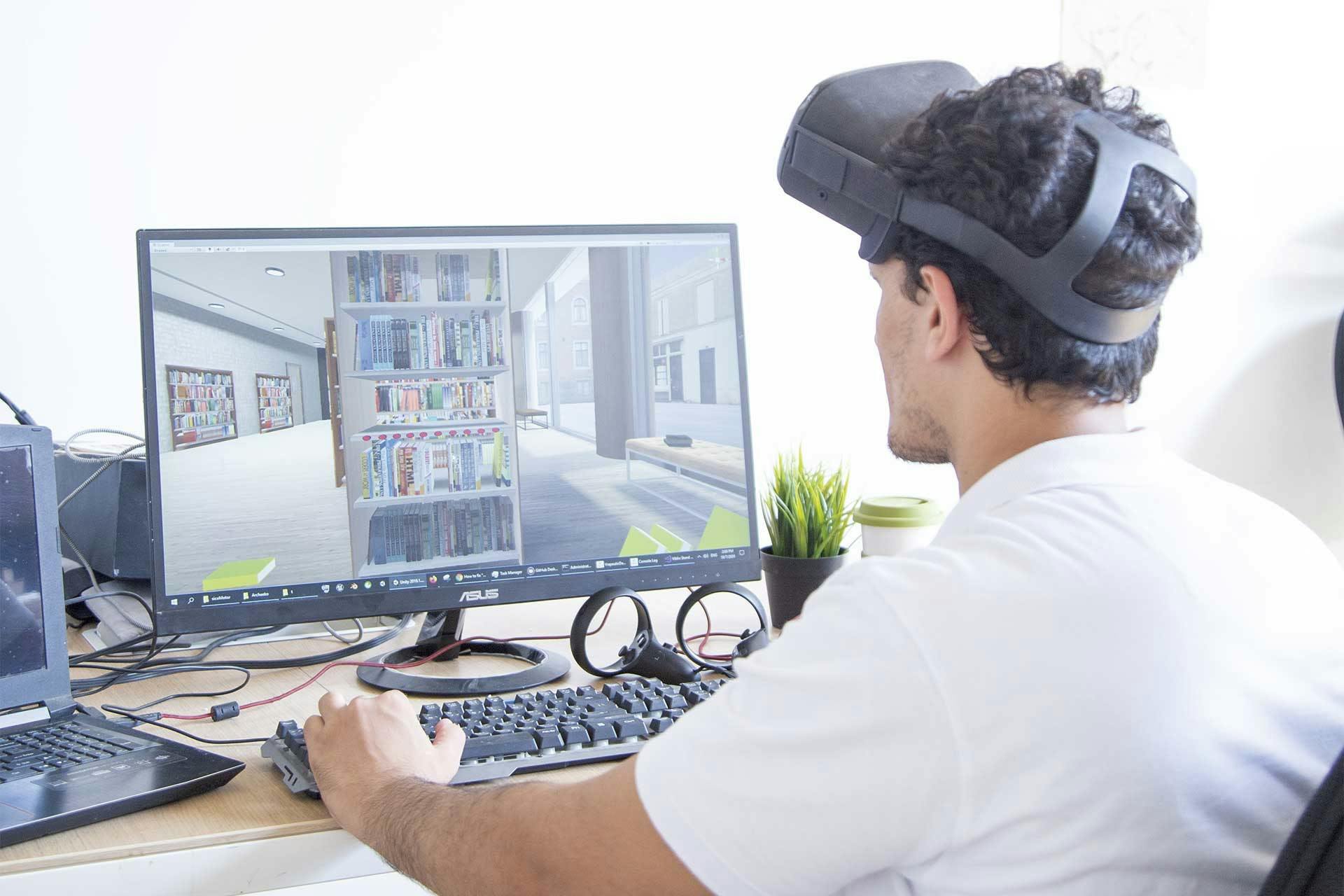
Exploring the VRapeutic platform. Photo: Wafaa Samir
Alexandria native Ahmad Al-Kabbany obtained a PhD in engineering from the University of Ottawa before returning to Egypt and launching VRapeutic. The healthtech startup develops supervised virtual reality experiences for children diagnosed with dyslexia, dyspraxia, ADHD, autism and cerebral palsy among other conditions, helping them to acquire social, cognitive, motor and academic skills.
VRapeutic currently runs on a B2B model, with therapists and medical institutions as its customers and partners, but it is also working on a model for at-home use. The company has faced some challenges related to its infrastructure: not every center that wanted to use the platform had a strong internet connection. This pushed it to develop a system that is light on data use.
In addition, some potential customers are unconvinced of the benefits of the platform. “Sometimes we meet therapists who are not up to date with the research part of our work,” says Ahmad. “They are not aware of the potential that immersive technologies can have in this regard.”
In July 2020, UNICEF invested in VRapeutic through its Venture Fund, which has helped the company to undertake more research as well as increase its sales and marketing. VRapeutic was launched in Alexandria in 2017, but Ahmad and his team chose to expand operations to Cairo because it has the most therapy centers and relevant medical institutions in Egypt.
Inspired to start your own business in Egypt? Want to learn more about the local ecosystem?
Order your copy of Startup Guide Egypt now.
Written by Leena ElDeeb, Alexandra Connerty and Rachel Velebny.
Repackaged by Hazel Boydell.
